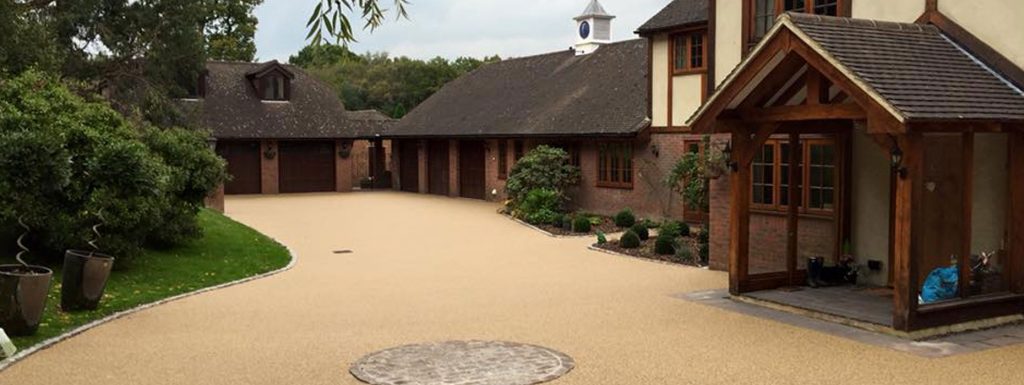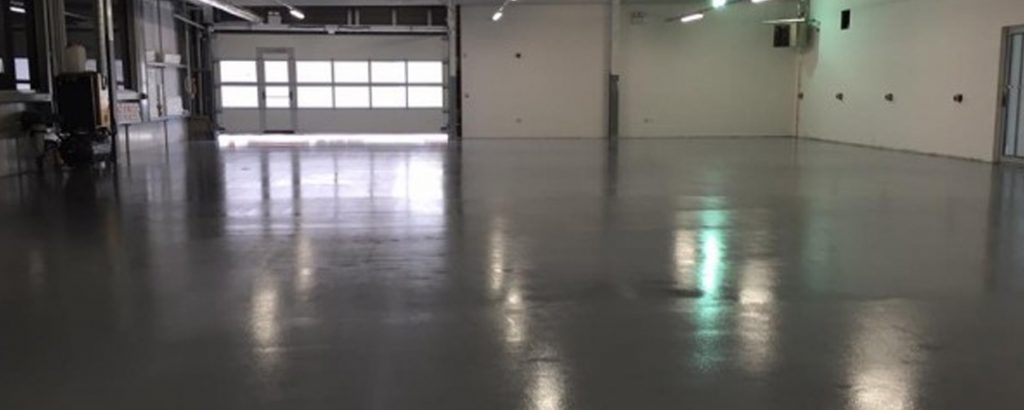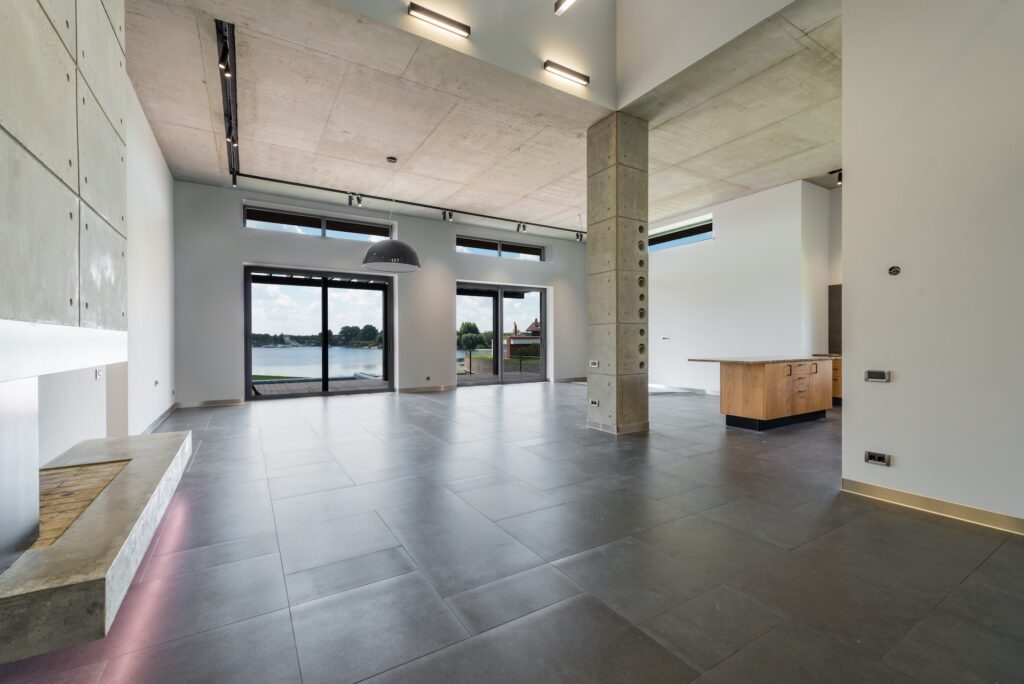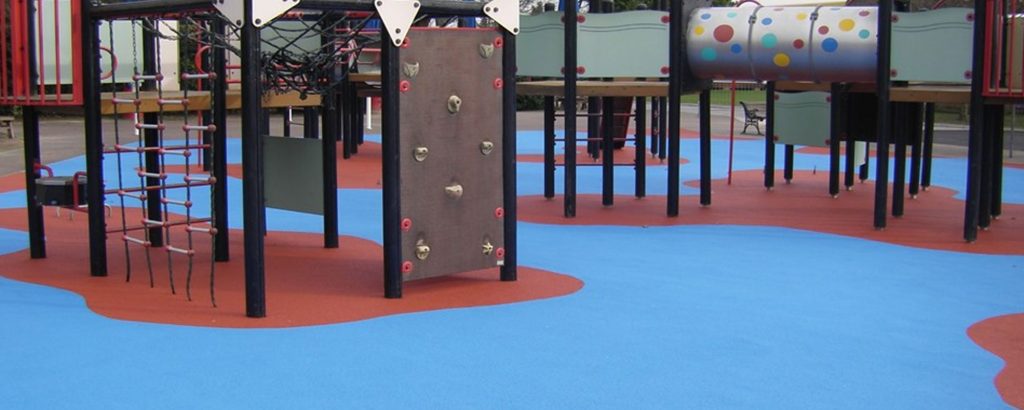If you’re looking to install a driveway on your property, you will know that permeable driveway options are now the norm in the United Kingdom. There are many reasons for this, but the main one is the change to building regulations that are designed to persuade homeowners to switch to a porous surface, known as sustainable Urban drainage systems
Essentially, it makes sense to opt for a porous material on your driveway as it’s better for the environment and means you’re more likely to secure planning permission if necessary. Of course, this doesn’t answer all the questions relating to the subject.
Therefore, we’ve created this post to walk you through the permeable driveway options, their pros and cons, and the problems that can occur if you decide to opt for a non-porous material.
Looking for a free quote for a permeable driveway?
Fill out our contact form with more details about your driveway and we'll get in touch with a more accurate, no-obligation permeable driveway cost.
What Is a permeable surface?
The definition of permeable is often the best place to begin since the regulations don’t define permeable and non-permeable surfaces, which is confusing. However, the easiest way to simplify it is to understand that the legislation is designed to funnel water into the ground and away from drains and sewage systems.
Therefore, the likes of concrete, tarmac, block stone, and flag paving are not suitable. Instead, it’s better to opt for the following:
- Gravel
- Shingle
- Reinforced grass
- Wheel tracks
- A soakaway system
- A rain garden
- Driveway resin bound
- Rainwater harvesting technology
The above are permeable solutions as they encourage water to soak into the ground naturally rather than running off into a drainage system that can’t cope with the influx of H2O.
What are the best permeable driveway options?
As there are several materials and approaches at your disposal, it’s essential to understand the pros and cons so that you can make an informed decision that’s suitable for your property.
Gravel driveway
Gravel or shingle are popular because they are cheap, easy to install, and they look quite attractive. All you need to do is apply the materials over a sub-base or weed mesh, so you can even do it yourself if you want to make the process less expensive. Most homeowners find the weed mesh essential as it prevents greenery from growing through and making the driveway appear messy and cluttered.
However, it’s not great for steep surfaces where there is an incline as the water can force the gravel to come loose. Plus, the steepness of your drive will encourage more stone or shingles to scatter, meaning it can require a lot of maintenance to keep it looking smooth and tidy.
Wheel tracks
Although wheel tracks aren’t as comprehensive as some of the other methods on this list, they are effective. To create wheel tracks, all you need to do is lay flags, stones, or paving to the areas of your drive that a car will touch. By doing this, you can keep the rest of the driveway as gravel without the annoying side-effects, such as damage to your vehicle or wheel spin.
Another popular feature is that you won’t require planning permission as long as the paved area is under fifty-two metres. This is pretty high so it shouldn’t be an issue! Like a gravel driveway, there is a lot of maintenance involved as the non-paved area will appear unkempt with regular conservation.
Reinforced grass
Reinforced grass driveway parking is becoming more popular as it lets homeowners maintain a natural level of kerb appeal. The process involves laying rubber, plastic, or concrete mesh mats on the ground as a place to park your car. Thanks to the mesh, the lawn will grow through, creating an organic aesthetic. Also, they are incredibly easy to lay and prevent your vehicle from creating ungainly marks.
Mowing is necessary, but most homeowners do this anyway. Probably the biggest issue is the fact you need to use the correct grass, or else it won’t grow through the mesh. However, if you already have it, or you’re ready to plant it, reinforced grass is an excellent permeable driveway option.
Permeable hard surfaces
Unfortunately, truly porous driveways aren’t always suitable. For example, they may not provide enough stability, leading to structural damage. In that case, it’s fine to choose a hard surface with permeable qualities., such as:
Concrete/flagging/asphalt: Typically, these materials are tweaked so that they allow water through the main body or around the edges of the surfaces. However, the base will always be porous to ensure that they can keep up with the demands of heavy rain. These materials are very durable.
Resin: Permeable resin bound paving has natural water filtering qualities as water is allowed to seep through the surface and back into the ground via the substrate. Resin bound driveways are fully compliant with SUDS (Sustainable urban Drainage Systems) and are a popular option for flood conscious yet aesthetic conscious homeowners. Remember that resin bonded is not permeable. These two terms are often used interchangeably so pay close attention to what you’re paying for!
Related Reading: Find out how much a resin bound driveway costs
Sometimes, permeable surfaces aren’t up to the job. In this case, you’ll require one of the following:
A soakaway: This is a large hole in the ground where water builds up and will slowly absorb into the earth. They need to be designed correctly or else they aren’t effective, which requires plenty of space for the digging of the hole.
A rain garden: A rain garden is an open soakaway. Plants are added to help with the excess moisture and to create a natural-looking outdoor feature. However, the rain does build quite dramatically in heavy rain, so if your property deals with flooding, it might not be appropriate.
Rainwater harvesting: As the name suggests, this is when the excess H2O is collected and reused. For example, it could be to wash the car or flush the toilet in your home. While the process is sustainable, the system is complicated and expensive.
The problems with impermeable driveway options
Impermeable surfaces present several issues. The main one is that rainwater might lead to severe flooding as the H2O doesn’t soak into the soil. With global warming getting worse, this is a problem for all property owners.
From a legal perspective, it’s essential to have planning permission from the council if your driveway is non-permeable. However, permeable driveway options are exempt from the rules that apply to householders who want to pave their front gardens.
Therefore, a huge problem with impermeable driveways is, they aren’t permitted developments, and this adds a huge amount of stress and confusion to another simple job.





